
Political identity came to the territory now occupied by the Principality of Liechtenstein in 814, with the formation of the subcountry of Lower Rhætia. Liechtenstein's borders have remained unchanged since 1434, when the Rhine established the border between the Holy Roman Empire and the Swiss cantons.

Hans Brunhart is a politician and journalist from Liechtenstein who served as Prime Minister of Liechtenstein from 1978 to 1993. He previously served as Deputy Prime Minister of Liechtenstein from 1974 to 1978, under the government of Walter Kieber.

The German National Movement in Liechtenstein was a Nazi party in Liechtenstein that existed between 1938 and 1945.

Alfred Hilbe was a politician from Liechtenstein who served as Prime Minister of Liechtenstein from 1970 to 1974. He previously served as Deputy Prime Minister of Liechtenstein from 1965 to 1970, under the government of Gerard Batliner.

Gustav Schädler was a teacher and politician from Liechtenstein who served as Prime Minister of Liechtenstein from 1922 to 1928. He previously served in the Landtag of Liechtenstein from 1919 to 1922.
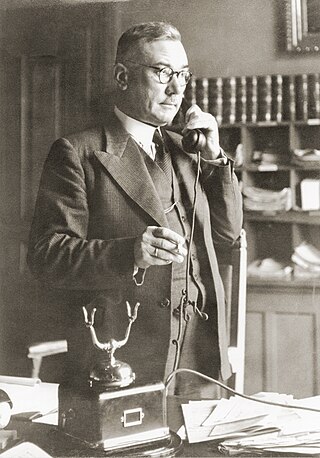
Franz Josef Hoop was a Liechtensteiner diplomat and politician who served as Prime Minister of Liechtenstein from 1928 to 1945. He later served as the President of the Landtag of Liechtenstein from 1958 to 1959.
The Christian-Social People's Party, often shortened to simply the People's Party, was a social liberal political party in Liechtenstein. It tended to be more popular in the Oberland, and supported closer ties with Switzerland as opposed to Austria. Founded in 1918, the Christian-Social People's Party and the Progressive Citizens' Party (FBP) were the first political parties in Liechtenstein.

Liechtenstein Homeland Service was a political party in Liechtenstein that advocated corporate statism and the abolition of party politics. Shortly after its founding, the party also moved towards Nazism. It merged with the Christian-Social People's Party to form the Patriotic Union in 1936.
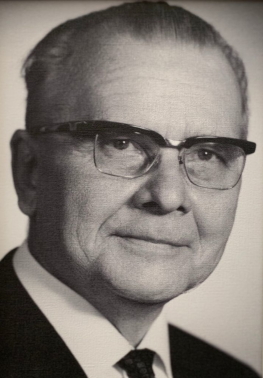
Otto Schaedler was a physician and political figure from Liechtenstein who served in the Landtag of Liechtenstein and was one of the founders of the Patriotic Union party.
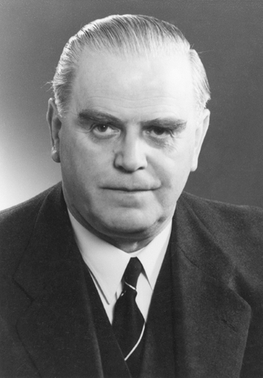
Alois Ritter was a lawyer and politician from Liechtenstein who served as the President of the Landtag of Liechtenstein in 1954 and again in 1956. He also served in the Landtag of Liechtenstein from 1945 to 1958.

Alois Vogt was an advocate and political figure from Liechtenstein who served as the Deputy Prime Minister of Liechtenstein from 1938 to 1945. He later served in the Landtag of Liechtenstein from 1949 to 1966.

Wilhelm Beck was an advocate and political figure from Liechtenstein who was one of the founders of the Christian-Social People's Party and served as the President of the Landtag of Liechtenstein from 1922 to 1927.

The second Josef Hoop cabinet was the governing body of Liechtenstein from 28 February 1936 to 30 March 1938. It was appointed by Franz I and chaired by Josef Hoop.
The November 1918 Liechtenstein putsch, also known as the Beck putsch was a de facto coup d'état by the leaders of the Christian-Social People's Party against the government of Governor of Liechtenstein, Leopold Freiherr von Imhof. The coup forced Imhof's government to resign and established a Provisional Executive Committee in his place until 7 December.
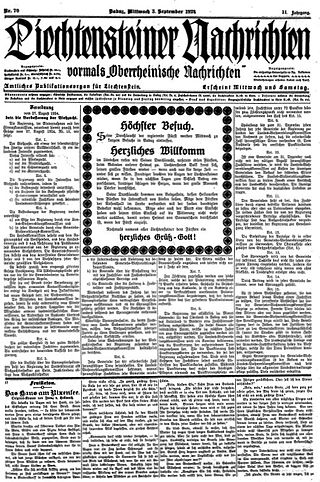
Liechtensteiner Nachrichten, known as the Oberrheinische Nachrichten until 1924 was a weekly newspaper in published in Liechtenstein from 1914 to 1936. It was the official newspaper of the Christian-Social People's Party.
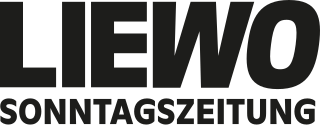
Liewo Sonntagszeitung, also known as Neue Liewo, is a weekly newspaper published in Werdenberg, Switzerland and Liechtenstein. It operates as a subsidiary newspaper of the Liechtensteiner Vaterland.
Rupert Quaderer was a politician and journalist from Liechtenstein.
The 1937 Liechtenstein spy affair was a scandal involving Carl Freiherr von Vogelsang, a founding member of the Patriotic Union and editor of the Liechtensteiner Vaterland, where it was revealed that he had sent numerous letters detailing Jews in Liechtenstein to Nazi Germany. The scandal caused prime minister Josef Hoop to order the offices of the Vaterland to be searched and for any papers to be confiscated. As a result, Vogelsang promptly left the country.













